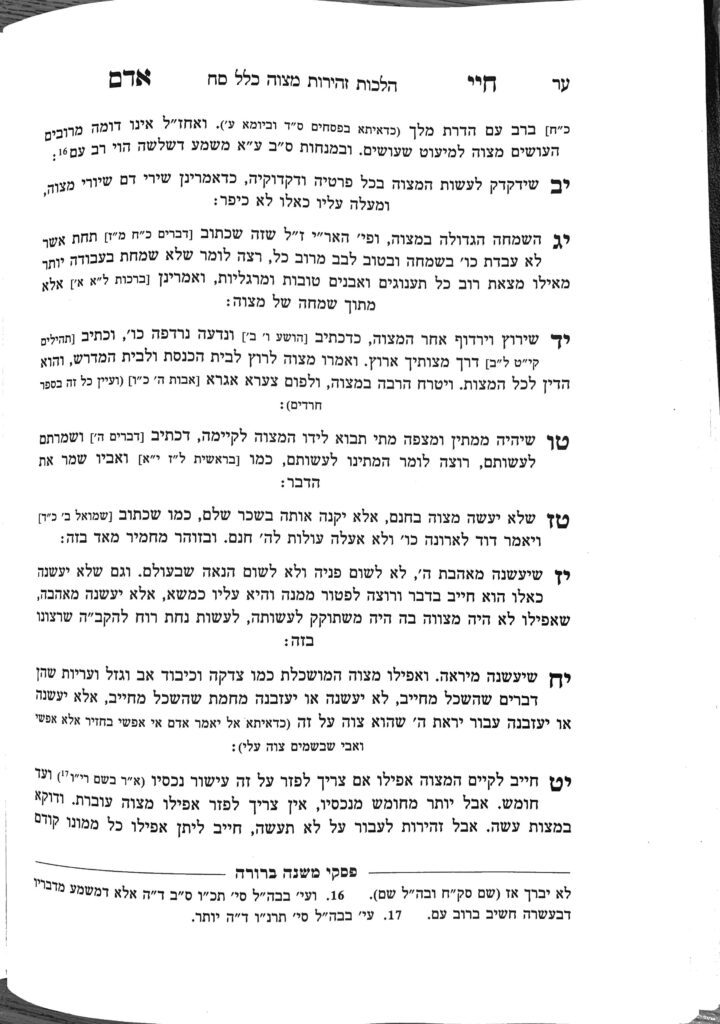We are beginning siman 18, which discusses doing mitzvos out of yirah. The Chayei Adam writes that a person should perform mitzvos out of yirah. Even mitzvos which supposedly make sense logically should be performed out of yirah and not due to a person’s logical conclusions. A person should not perform a mitzvah or refrain from an aveirah because of their own logical conclusions, but because it is what Hashem said to do, and a person’s awe and respect of Hashem does not allow them to contradict Hashem’s will. If Hashem wants a mitzvah to happen, or an aveirah not to happen, a person goes against Hashem’s ratzon by refraining from the mitzvah or transgressing the aveirah.
If a person is in respect of an individual to the point that they are in awe of him and respect their knowledge and middos, they would not go against their words, because they understand that this individual is a whole level above them.
The Chayei Adam quotes the Torah Kohanim, which says that a person should not say that they refrain from non-kosher because they find it abominable, but because of Hashem’s command. This idea is found on the pasuk va’avdil eschem min ha’amim l’hiyos li, that Hashem separated us from the nations, which is written at the end of the parsha regarding ma’achalos asuros, forbidden foods. Chazal are teaching us that a person should understand that the separation we have with the nations through ma’achalos asuros is not for ourselves, but for Hashem.
This pasuk is written in the context of ma’achalos asuros, which Chazal consider chukim, mitzvos we would not have figured out with our own sechel. Nevertheless, the Chayei Adam extends the idea of the Toras Kohanim to mitzvos which can be understood through one’s sechel (i.e., mitzvos which could have been understood on our own).
Either way, the Toras Kohanim does not say that this idea is an expression of yirah, but simply that one should do mitzvos because it is Hashem’s will. The idea that following Hashem’s commands simply because it is Hashem’s will is an expression of yirah is the Chayei Adam’s own chiddush.
However, once the Chayei Adam understands that following Hashem’s commands because Hashem said so is an expression of yirah, its application to all mitzvos, even mitzvos which can be understood with one’s sechel, is understandable. It is a true expression of yiras shamayim to recognize that it is not a person’s own sechel that brought them to follow a mitzvah which could be understood through sechel, but Hashem’s command.
The Yerushalmi says asei m’ahavah asei m’yirah, a person should do the mitzvos out of ahavah and yirah. That doing the mitzvos because it is ratzon Hashem is an expression of yirah is the Chayei Adam’s addition. We will discuss this further in the next shiur, be’ezras Hashem.
Summary
A person should perform all mitzvos, even mitzvos which can be understood with one’s sechel, out of yirah; that is, an understanding that they are performing this mitzvah because it is ratzon Hashem.



